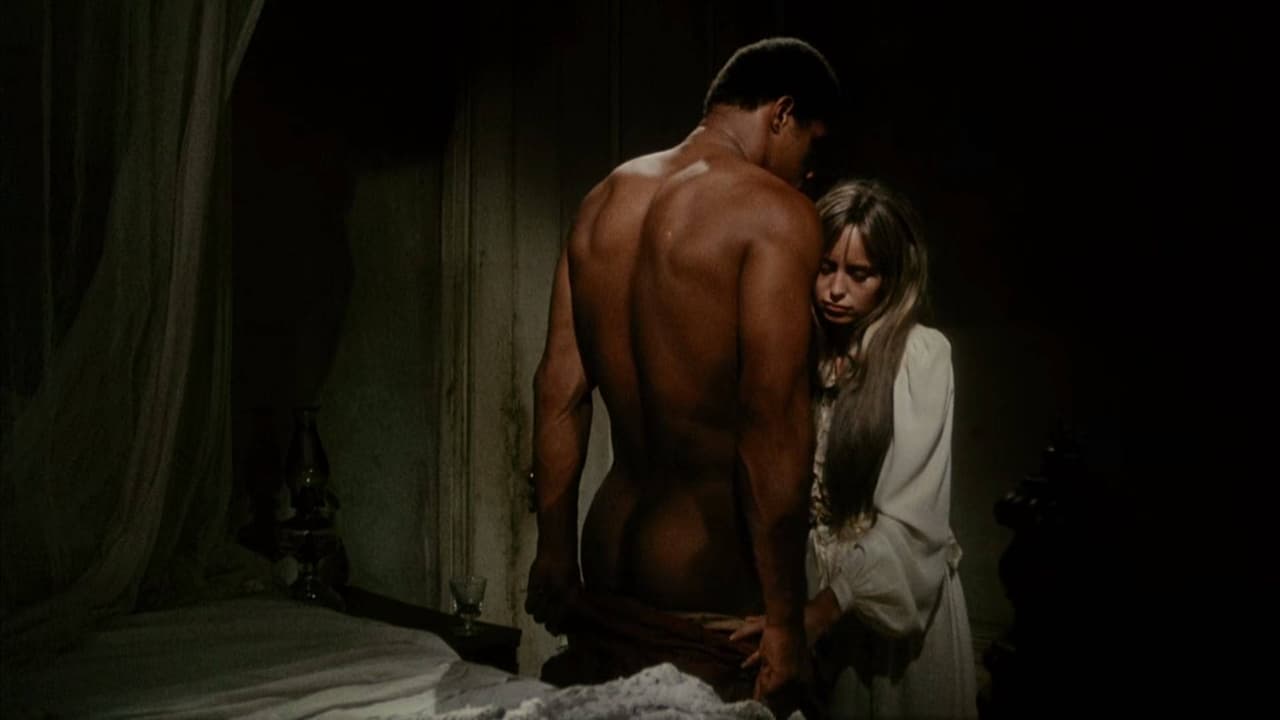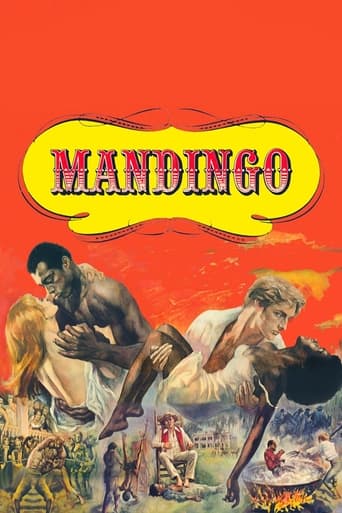

This is one of the few movies I've ever seen where the whole audience broke into spontaneous, loud applause a third of the way in.
... View MoreWhile it doesn't offer any answers, it both thrills and makes you think.
... View MoreExcellent characters with emotional depth. My wife, daughter and granddaughter all enjoyed it...and me, too! Very good movie! You won't be disappointed.
... View MoreThere are moments that feel comical, some horrific, and some downright inspiring but the tonal shifts hardly matter as the end results come to a film that's perfect for this time.
... View MoreIn slave-owning Louisiana, Hammond Maxwell (Perry King) is a dutiful son managing his family's rundown plantation and its slaves. He is considered kind compared to other slave owners but he is still fully involved in the institution. He has sex with his slave Ellen and takes a liking to her. He marries his cousin Blanche but their marriage is troubled from the start. From his father, he gets obsessed with purchasing a Mandingo, a slave gladiator. He buys hulking submissive Mede (Ken Norton) who he hopes to turn into a fighter.It's fascinating how times have change. This is comparable to 12 Years a Slave. While 12 got Best Picture, this got panned. The violence and brutality is matter of fact. There is nothing special in the whipping and the raping. They are everyday occurrences. Even Hammond is not out of the ordinary. He still has some of his humanity which only makes this even darker and more real. Back in '75, this brutal depiction of slavery was probably too much for many and was ahead of its time. It doesn't turn it into melodrama. It lets the audience exist in the dark times. Tarantino sees this as influencing his Django Unchained. It is missing more from the slaves' side of their existence. It would probably be better to have both Hammond and Ellen as protagonists. It needs to get inside the slaves' mind. Despite that, this is still a shocking and compelling movie.
... View MoreI can see why this was controversial, and no doubt it would be if it were released now (2013). It's stunningly unlike Gone with the Wind. The style is extreme Southern Gothic, (not to be confused with camp). Some shades of Tennessee Williams but goes beyond where he dared. The dialogue is a bit difficult, and DVD has no English subtitles, but you'll be rewarded if you stick with it. (No need to understand every word). I agree that Tarantino was influenced by it but his approach to the subject matter is very different. Mandingo stands on its own as a major work of the 1970s and it's certainly a film that deserves to be better known. Striking photography and music throughout. This film panders to no one, nor does it simplistically tell the viewer what to think about anything. We have the feeling we're on our own with this. Maybe it's no accident that that feels liberating. Fasten your seat belts and see it.
... View MoreLoved by some, hated by many, this searing antebellum Southern Gothic melodrama about the inherent barbarism and inhumanity of slavery in the deep South circa 1840 reigns supreme as one of the single most startling and unflinching sleazoid epics to ever ooze its way onto celluloid. The fact that established director Richard Fleischer and respectable actor James Mason joined forces with major studio Paramount to produce such a raw, harsh and gritty expose on the slave trade is amazing in and of itself. Granted, this picture certainly isn't pretty or pleasant by any stretch of the imagination, but it certainly lives up to its notorious reputation and delivers a potent lingering sucker punch right to the gut.Cruel Warren Maxwell (marvelously essayed with deliciously nasty brio by Mason) runs his plantation with a proverbial iron fist. His handsome and more compassionate son Hammond (a fine Perry King) gets married to spoiled belle Blanche (a gloriously histrionic Susan George mangling a Southern accent), but falls for tender slave girl Ellen (an affecting performance by Brenda Sykes). Moreover, Hammond buys beefy stud Mede (brawny heavyweight boxer Ken Norton) and trains him to become an unbeatable champion fighter. Meanwhile, the neglected Blanche has a extramarital fling with Mede. Director Fleischer and screenwriter Norman Wexler take the stereotypical romanticized vision of the Old South and completely turn it on its ear by relating the sordid narrative in an unsparingly lurid and sensational manner: Incest, torture, sex, degradation, beatings, miscegenation, nudity (even King goes full frontal!), infidelity, and murder are all served up hot and graphic in this fascinatingly warped and depraved cinematic brew. Even the most hardened aficionado of in-your-face base and trashy exploitation fare should be pleased by such savage highlights as a little boy being used as a foot stool, a pregnant woman having a miscarriage after she's sent flying down a steep flight of stairs, a ferocious no-holds-barred fighting match, and Mede being boiled alive in a huge pot of hot water by an enraged Hammond. The cast really sink their teeth their juicy roles, with stand-out supporting work from Richard Ward as cowed house servant Agamemnon, Lillian Hayman as cheery maid Lucretia Borgia, Ji-Tu Cumbuka as angry, defiant slave Cicero, Ben Masters as Blanche's evil heel brother Charles, Roy Poole as the cold Doc Redfield, and Paul Benedict as slimy slave trader Brownlee. Cinematographer Richard H. Kline gives the movie a properly rough and grainy look while Maurice Jarre's neatly varied and melodic score likewise does the trick. Muddy Waters sings the excellent bluesy theme song "Born in This Time." A true landmark of big budget grindhouse cinema at its most unapologetically seamy and twisted.
... View MoreRichard Fleischer directs a hot-blooded drama set in the Deep South circa 1840. Warren Maxwell(James Mason)lords over a rundown plantation and his son Hammond(Perry King)travels to New Orleans in hopes of purchasing a top-of-the-line fighting slave, a Mandingo. Hammond finds a real gem in Mede( boxer Ken Norton)at an auction and plans on making a fortune by way of his fighting prowess. Back on the plantation, Master Maxwell puts the pressure on his son to produce an heir. He has his dark winches, but is all but forced to marry an alabaster-skinned Blanche(Susan George). When Hammond discovers she is not a virgin the marriage is a sham. Love, hate, deceit and murder.Very provocative for the mid '70s and a very talked about film. A little over two hours in length with some very sordid and graphic scenes. MANDINGO is based on the novel by Kyle Onstott and produced by Dino De Laurentiis. Also in the cast: Brenda Sykes, Lillian Haymann, Ben Masters, Paul Benedict and Richard Ward.
... View More